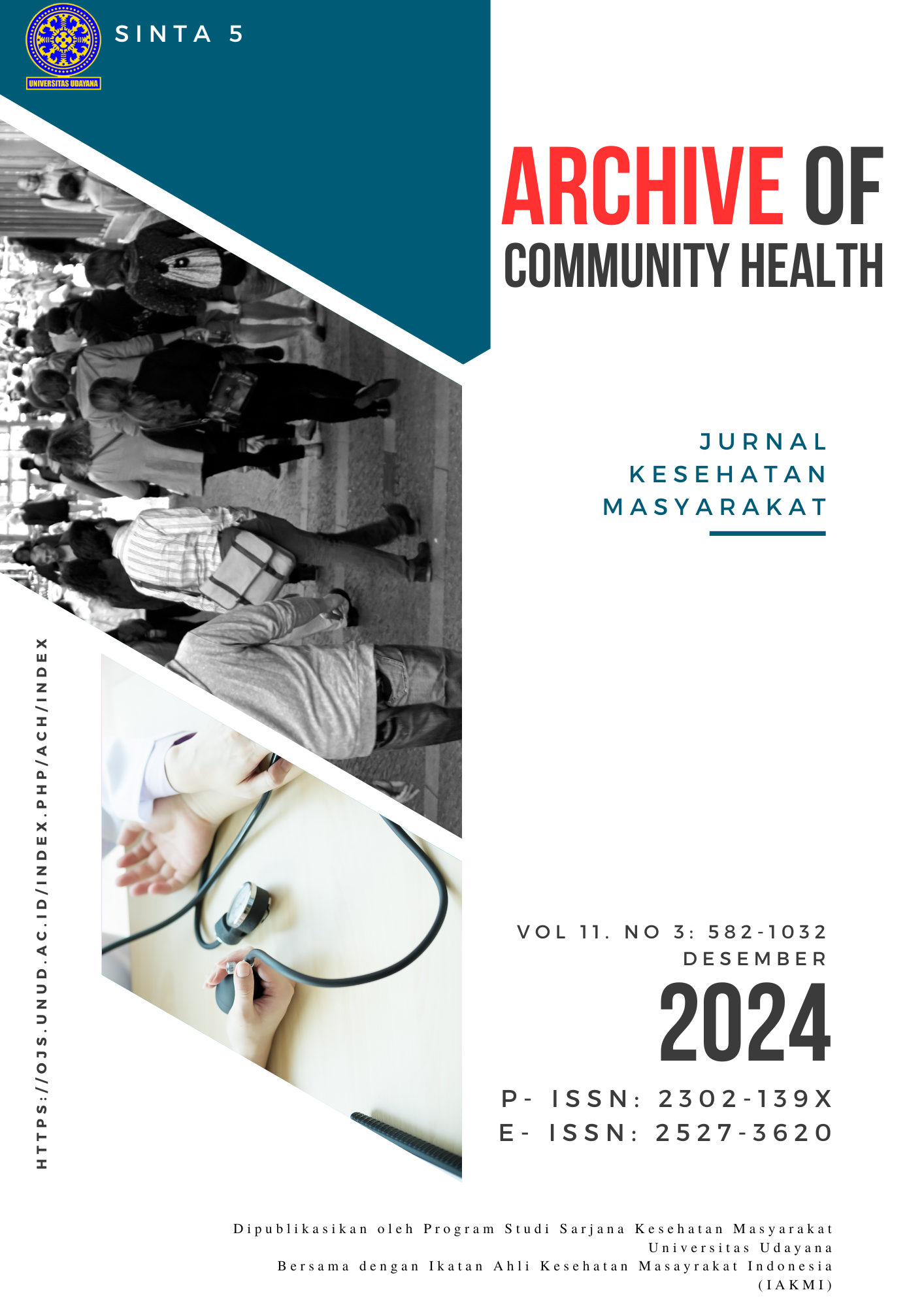GAMBARAN FAKTOR-FAKTOR INTERNAL DAN EKSTERNAL AKSEPTOR KELUARGA BERENCANA DALAM PEMILIHAN ALAT KONRASEPSI
Abstract
ABSTRAK
Pemakaian alat kontrasepsi dalam rahim cukup rendah dibandingkan pemakaian kontrasepsi jangka pendek. Tujuan penelitian ini untuk mengetahui gambaran faktor internal dan eksternal akseptor keluarga berencana dalam pemilihan alat kontrasepsi. Metode penelitian yaitu deskriptif dengan pendekatan cross sectional. Teknik sampling proportional random sampling dan penelitian dilakukan pada bulan Maret-April 2023 di tiga Praktik Mandiri Bidan Wilayah Kerja Kecamatan Kuta Selatan. Sampel berjumlah 88 orang. Berdasarkan hasil penelitian pemilihan alat kontrasepsi di PMB Wilayah Kerja Kecamatan Kuta Selatan sebagian besar memilih kontrasepsi suntik. Hasil menunjukkan sebagian besar responden berusia 20-35 tahun, pendidikan menangah, paritas multipara, penghasilan <UMR, pengetahuan kurang dan berdasarkan faktor eksternal diketahui bahwa sebagian besar suami tidak mendukung serta sebagian besar mendapatkan dukungan tenaga kesehatan. Simpulan penelitian ini yaitu pemilihan alat kontrasepsi di PMB Wilayah Kerja Kecamatan Kuta Selatan sebagian besar memilih kontrasepsi suntik dan sebagian besar suami tidak mendukung memilih menggunakan alat kontrasepsi suntik. Disarankan agar pihak PMB wilayah kerja kecamatan kuta selatan meningkatkan pengetahuan masyarakat yang kurang dengan mengadakan penyuluhan.
Keywords: kontrasepsi, akseptor, keluarga berencana
ABSTRACT
The use of intrauterine contraceptives is quite low compared to the use of short- term contraception. The purpose of this study was to describe the internal and external factors of family planning in the selection of intrauterine contraceptives. Descriptive research method with a cross sectional approach. The sampling technique is proportional random sampling and the research was conducted in March-April 2023 in three Independent Midwives Practices in the Working Area of South Kuta District. Sample are 88 people. Based on the results of the study, the selection of contraceptives in the PMB Working Area of South Kuta District mostly chose injection contraception. The result show most respondent were 20-35 years old, middle education, multipara parity, income <UMR, lack of knowledge and based on external factors are known that most husbands do not support and most of them get the support of health workers. The conclusion of this research is that the choice of contraceptives in the PMB in the South Kuta District Work Area mostly chooses injectable contraception and most husbands do not support choosing to use injectable contraceptives. It is recommended that the PMB in the South Kuta sub-district working area increase the community's lack of knowledge by holding counseling.
Keywords: contraception, acceptors, family planning














